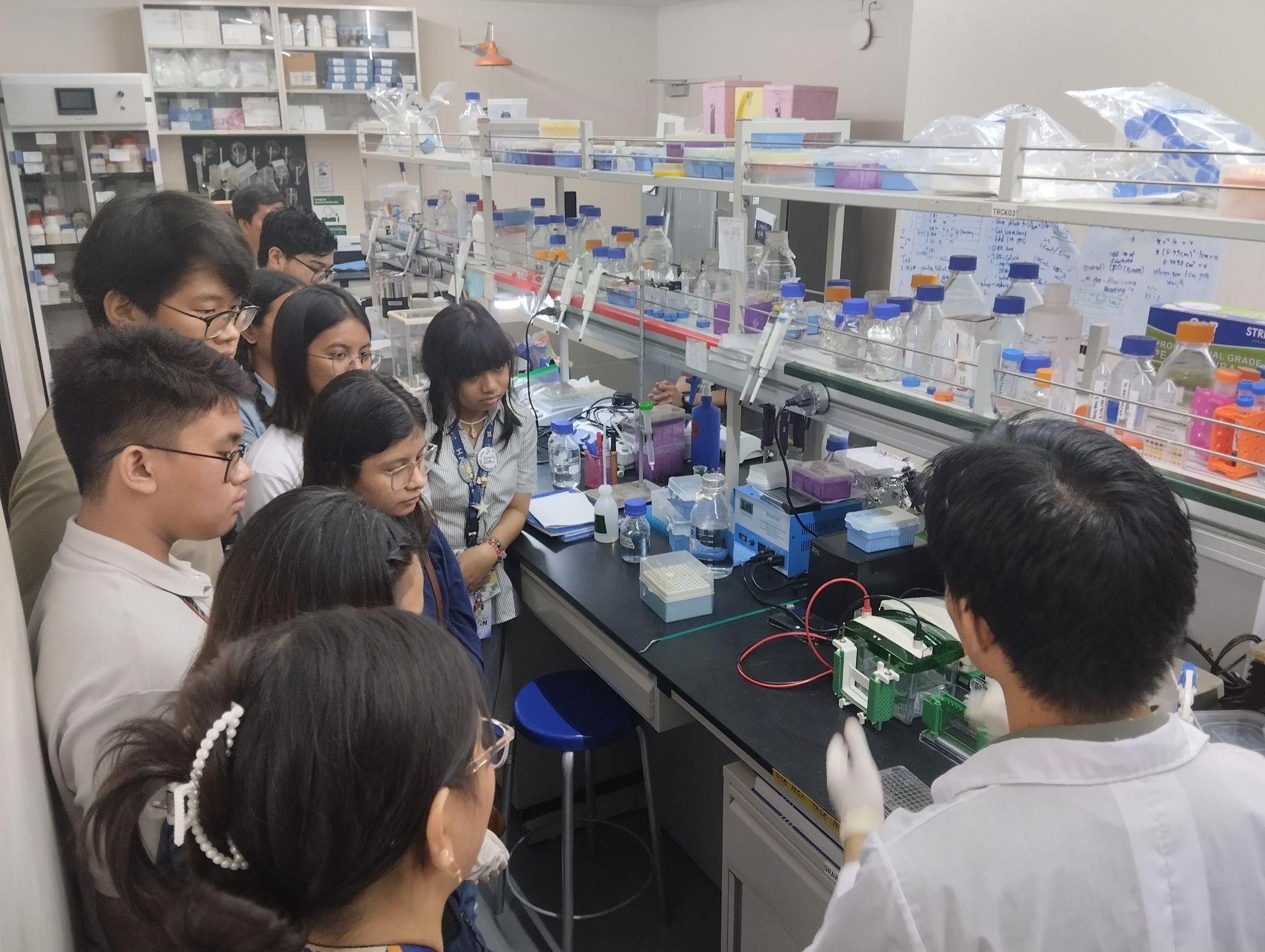NEWS AND UPDATES
PCHRD hosts third Annual Science Immersion Program with PSHS-CALABARZONRC and UE Manila Students

In a mission to ignite the youth’s passion for science and technology, the Philippine Council for Health Research and Development (PCHRD), through its Research and Development Management Division (RDMD), hosted the third Science Immersion Program (SIP) which provided eight students from the Philippine Science High School-CALABARZON Region Campus (PSHS-CALABARZONRC) and seven students from the University of the East (UE) Manila with exposure to ongoing health researches and initiatives all over the country.
According to PCHRD lead coordinator, Mr. Joseph Emmanuel Valdez of the RDMD, the SIP was designed to deepen students’ understanding and appreciation of science and technology and encourage them to pursue a career in health research.
The Council provided lectures and mentorships on practical applications in various scientific fields. These included prevalent diseases in the Philippines, functional foods and nutraceuticals, drug discovery and development, and the application of Artificial Intelligence in the healthcare system. The students also participated in a workshop on proposal writing, evaluation, and presentation, which primarily focused on securing research funding from the Council.

In addition, the Council also provided the students with laboratory visits to different implementing agencies. Starting with the University of the Philippines Manila’s Augmented Experience eHealth Laboratory (AXEL), the students gained insights into the application of artificial intelligence in managing patients with neurological conditions through PCHRD’s funded program entitled “Immersive Technology Applications in Healthcare.” At the University of the Philippines Diliman laboratories, the students engaged in brief lectures and hands-on workshops focusing on Molecular Biology, Microbiology Techniques, and DNA testing. Next, at De La Salle University’s Biomaterials and Tissue Engineering Laboratory (BIMATEL), the students had an introductory lecture on the basic science of tissue engineering through the PCHRD-funded project of “Hydrogel from pig kidneys: preparation, characterization, and pre-clinical assessment for kidney tissue regeneration.” At Ateneo de Manila University’s Molecular Pathology Laboratory (AMPLify) and the Integrated Protein Research Center (IPRDC), Laboratory heads gave insightful lectures about their work. They introduced specialized equipment and ongoing projects, broadening the student’s understanding of molecular pathology and protein research. Lastly, the DOST Industrial Technology Development Institute (ITDI) and DOST Food and Nutrition Research Institute (FNRI) opened their doors, allowing students to explore various laboratories and learn about ongoing projects in industrial technology innovations and food and nutrition research.
PCHRD Program Coordinators facilitated the duration of all the SIP activities with the Council’s research partners aiming to maximize the students’ awareness of the research programs being done in the Philippines.
The SIP left a lasting impression on the students. Theo Jade Medina, a third-year Biology student from UE Manila, found it valuable for future career choices. “The lessons and research from different institutions will help me choose my field of interest and career path,” Medina explained. Sam Joseph P. Ong, a Grade 9 student from PSHS-CALABARZON RC, was impressed by the advanced equipment, noting, “The Large water retorts at ITDI, VR setups at UPM, 3D Bioprinter at DLSU, and Bioreactors at Ateneo were amazing.” Both praised PCHRD for providing a well-prepared program and a good learning environment, emphasizing the relevance of the topics and projects showcased. The positive feedback underscored the program’s success in offering meaningful, practical insights into various scientific fields.
The SIP capped its activities on July 5, 2024, with a closing ceremony during which students presented their research proposals. This presentation served as the final showcase of their scientific journey and the newly acquired skills they developed throughout the program. The SIP is a significant leap forward in connecting traditional classroom learning with real-world scientific applications. As the country continues to push for advancements in science and technology, programs like SIP are important in nurturing the next generation of Filipino scientists and innovators.




